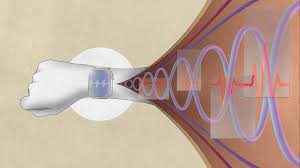Smartwatches, fitness bands aren’t medical devices but are starting to act like them – By Lisa Eadicicco (CNET) / January 13, 2022
The line is blurring as wearables become more advanced. And it’s only getting more complicated.
This story is part of The Year Ahead, CNET’s look at how the world will continue to evolve starting in 2022 and beyond.
Bill, a 31-year-old engineer based in Ohio, has experienced health anxiety in some capacity for most of his life. That’s why he bought a Fitbit Sense in late 2020. He thought it would reassure him that he was healthy if he was able to take an electrocardiogram (ECG or EKG) reading when he felt something abnormal, such as heartburn or an accelerated heartbeat.
Yet Bill only grew more anxious after receiving inconclusive ECG results on the Fitbit Sense. An inconclusive result doesn’t indicate a health issue; it just means the device couldn’t get a reliable reading. This can happen if there’s too much movement during the scan or if the wearer’s heart rate is too high or low, as Fitbit explains on its website.
But Bill didn’t realize this when he was taking up to 20 ECGs per day because of his anxiety around springtime last year. (Bill asked that his last name be omitted from the story so that he could freely discuss details about his health. CNET has verified his identity.)
“If it was inconclusive, I’d be like ‘OK, I need it to say normal,'” he said. “And I would keep checking it to see if it was normal or not, just to reassure myself that I was fine.”



















